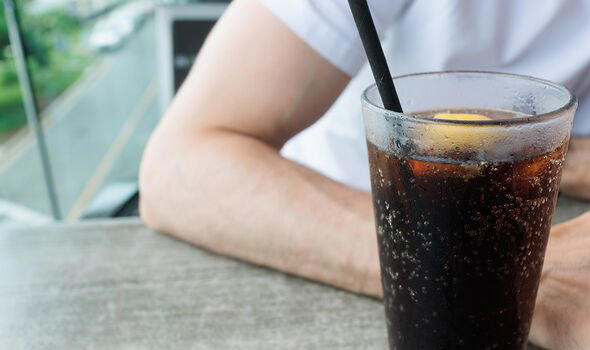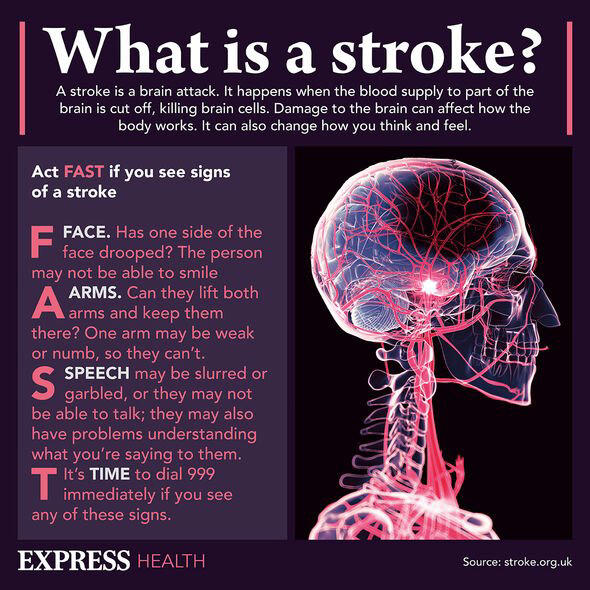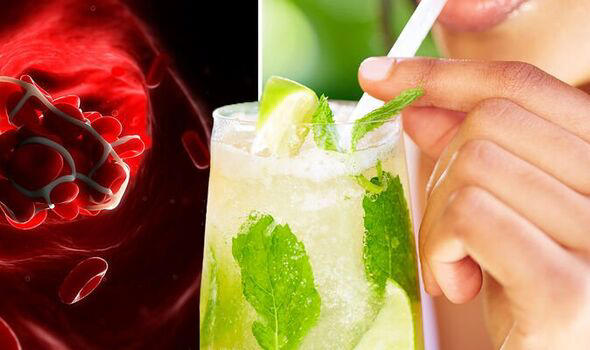Seemingly 'harmless' non-alcoholic drink linked to blood clots in the small arteries














Seemingly 'harmless' non-alcoholic drink linked to blood clots in the small arteries
Blood clots can be life threatening if they block veins or arteries. Coagulation in these areas can cause strokes and heart attacks. According to a study published in the journal Stroke, diet drinks, such as diet coke and diet fruit juice, are associated with an increased risk of blood clots of the small arteries.
esearchers looked at 81,715 women ages 50 to 79, who enrolled at 40 clinical sites across the United States between 1994 and 1998.
In addition to blood clot formation, the study found that compared with those who never or rarely drank diet beverages, women who drank two or more artificially sweetened drinks a day had a 31 percent increased risk of ischaemic stroke, which occurs when a vessel supplying blood to the brain is blocked.
In women with no prior history of cardiovascular disease or diabetes, high intake of diet drinks more than doubled their risk of small artery occlusion, a specific type of ischaemic stroke that occurs when blood flow is blocked to a very small arterial vessel.
This is one of the first studies to look at links between diet drinks and the risk of a specific type of stroke.
Women who consumed two or more diet drinks a day were also 23 percent more likely to have strokes, 29 percent more likely to develop coronary heart disease and 16 percent more likely to die from any cause. Reasons for these links are not yet known; researchers say findings deserve further study.
"These are very interesting findings that raise many additional questions," said Shirley Beresford, co-author and senior associate dean and professor of epidemiology at the University of Washington School of Public Health.
"Part of what makes this study important is that people who regularly drink soda or other sugary beverages tend to switch to artificially sweetened beverages to lose weight, when the ideal is to substitute with water."
Researchers also found risks were higher for certain women. Heavy consumption of diet drinks more than doubled stroke risk in African-American women and obese women.
These findings show that we shouldn't assume [diet drinks] are harmless when you consume them at high levels", said Yasmin Mossavar-Rahmani, associate professor of clinical epidemiology and population health at Albert Einstein College of Medicine, who also led the study.
The cohort of women included in this study is from the Women's Health Initiative, a long-term, national research effort focused on strategies for preventing heart disease, breast and colorectal cancer, and osteoporotic fractures in postmenopausal women.
Study participants initially filled out questionnaires on demographics, medical and family history and lifestyle factors, and had physical examinations.
Researchers followed up with women every year with a survey asking about adverse health events in the previous 12 months and with a medical record review. Study doctors reviewed potential cardiovascular disease events.

At the three-year follow up, women were invited for clinic visits to assess health outcomes and consumption of diet beverages.
The study adjusted for demographics, cardiovascular disease history, body mass index, health behaviours and overall diet quality.
"In this very large study, a modest increased risk for stroke was found, but it is too early to draw definite conclusions," Professor Beresford noted. "There is still much to be learned."
Researchers acknowledged that the study was observational, rather than a clinical trial; therefore, results must be interpreted with caution.

Future studies are needed to replicate the findings to examine specific diet beverages in relation to stroke and other outcomes to guide clinical recommendations.
Tips to ward off blood clots
According to the NHS, you should:
- Stay active - taking regular walks can help
- Drink plenty of water to avoid dehydration - you're more likely to get a clot if you're dehydrated
- Try to lose weight if you're overweight
- Wear flight stockings or flight socks to improve your blood flow on long flights - a pharmacist can advise you about this.
"If you're at a high risk of blood clots - for example, you're in hospital - follow the advice of your care team about preventing clots," notes the health body.
Reference: Daily Express: Adam Chapman -
No thoughts on “Seemingly 'harmless' non-alcoholic drink linked to blood clots in the small arteries”
Articles - Most Read
- Home
- LIVER DIS-EASE AND GALL BLADDER DIS-EASE
- Contacts
- African Wholistics - Medicines, Machines and Ignorance
- African Holistics - Seduced by Ignorance and Research
- African Wholistics -The Overlooked Revolution
- The Children of the Sun-3
- Kidney Stones-African Holistic Health
- PART ONE: DIS-EASE TREATMENT AND HEALTH-3
- 'Tortured' and shackled pupils freed from Nigerian Islamic school
- The Serpent and the RainBow-The Jaguar - 2
- PART ONE: DIS-EASE TREATMENT AND HEALTH-2
- PART ONE: DIS-EASE TREATMENT AND HEALTH-4
- PART ONE: DIS-EASE TREATMENT AND HEALTH-5
- King Leopold's Ghost - Introduction
- African Wholistics - Medicine
- Menopause
- PART ONE: DIS-EASE TREATMENT AND HEALTH-6
- The Mystery System
- The Black Pharaohs Nubian Pharaohs of Ancient Egypt
Who's On Line?
We have 33 guests and no members online
Ad Agency Remote
Articles - Latest
- The nightly ritual that could improve memory and brain health, according to scientists
- Hyacinth Bean: How Nutritionists Rate Its Nutrients, Health Effects, And More
- Top healthiest fruits with anti-inflammatory properties
- Vitamin B12 deficiency symptoms: How to spot the signs in your feet
- Dehydration may be as bad 'as smoking' for veins - how much water you need to avoid stroke
- Winter Squash: A Superfood Or Not? Nutrition Professionals Weigh In, With Serving Tips And Health Risks
- Why The Nutrition Professionals Love Winter Melon, Nutritional Benefits And Serving Size Guidelines
- Lesser-known lung cancer symptom in arm or shoulder that can't be ignored
- HIV breakthrough as new technology removes all traces of virus from infected cells
- Seven fruits for diabetics to avoid that can increase blood sugar spike risk
- Top 7 Uses and Benefits of Dead Nettle Plants
- 6 physical symptoms of anxiety you shouldn’t ignore, according to experts
- The five warning signs of bad circulation, according to a surgeon
- How to use wild garlic
- How many litres of water should you drink a day and does tea count?
- Cucumber: Nutrition Professional Opinions And Healthy Portions
- Hardening of the arteries speeds up ageing process, new study says - how to prevent
- FDA Approves First Gene Therapies to Treat Patients with Sickle Cell Disease
- Three questions for men facing infertility from risk factors to treatments

